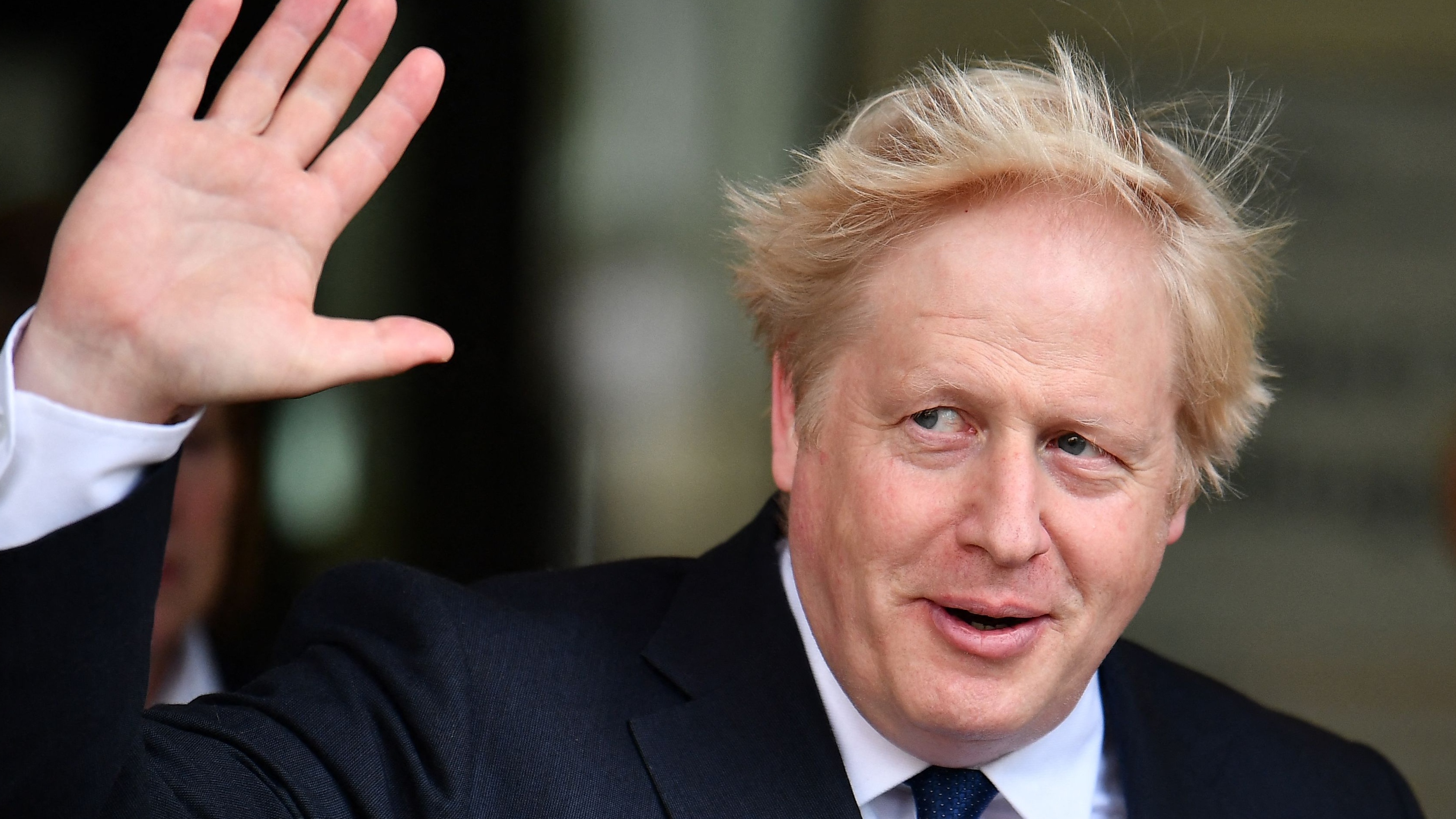The government’s big gamble on pay rises vs. labour shortages
Staffing issues are part of transition to a new post-Brexit economy, says government

A free daily email with the biggest news stories of the day – and the best features from TheWeek.com
You are now subscribed
Your newsletter sign-up was successful
Leading Tories have been promising this week that they are the party who will solve worker shortages with higher wages, while claiming the Labour Party will rely on increased immigration.
Conservative strategists hope it will be the “election-winning pitch” that turns the multiple crises the government is facing into “an opportunity” that could see Boris Johnson in No. 10 for the next decade, reported Politico’s London Playbook.
It is a pitch strengthened, in the view of Conservative insiders, by Labour leader Keir Starmer’s call for 100,000 foreign visas to be offered to overseas workers in order to fill current lorry driver vacancies.
The Week
Escape your echo chamber. Get the facts behind the news, plus analysis from multiple perspectives.

Sign up for The Week's Free Newsletters
From our morning news briefing to a weekly Good News Newsletter, get the best of The Week delivered directly to your inbox.
From our morning news briefing to a weekly Good News Newsletter, get the best of The Week delivered directly to your inbox.
A shortage of workers is “rippling out” from haulage, farming and hospitality to affect “almost all parts of the economy”, reported The Guardian. A new survey revealed that more than a quarter of 500 firms polled felt that a lack of staff was “putting pressure on their ability to operate at normal levels”.
Rejecting a ‘low-wage, high-immigration model’
Business Secretary Kwasi Kwarteng was among the first ministers to voice the government’s new line of defence during an interview with ConservativeHome, framing petrol and staff shortages as part of a transition to a new, post-Brexit economic model.
“Having rejected the low-wage, high-immigration model, we were always going to try to transition to something else. What we’re seeing now is part of that transition,” Kwarteng told the political news site.
A free daily email with the biggest news stories of the day – and the best features from TheWeek.com
Boris Johnson attempted to weave a similar narrative this weekend, telling the BBC’s Andrew Marr that the UK was in a “period of adjustment” after Brexit and the Covid-19 pandemic. He called out those who wanted to “go back to the tired, failed old model” of “reaching for the lever called uncontrolled immigration” to bring people into the UK to fill labour gaps.
The prime minister also claimed that the country was finally “seeing growth in wages, after more than ten years of flat-lining”. Marr stringently refuted the claim, saying that “in real terms over the last three months wages have gone down, not up”.
Behind closed doors, Conservative politicians are “not just happy but jubilant about worker shortages”, claimed Fraser Nelson in The Telegraph. It presents an opportunity for a “Tory revolution in the making” where levelling-up means “raising the salaries of the low-paid”, he said.
And while industry leaders may be calling for more visas for foreign workers to meet staffing needs, Conservative ministers are hoping “employers will give up hope of mass migration returning and adjust their investment plans accordingly”, said Nelson.
Sunak strikes a different tone
But if this is the Conservative strategy, it is “fraught with risk”, said London Playbook. Even if this government can ride out the current shortages, which extend beyond labour and petrol to other goods too, it then “faces the prospect of its plan to drive up wages for workers also causing a surge in inflation, leading to higher interest rates and a nightmare impact on mortgages and debt”.
And Chancellor Rishi Sunak was “very different in tone” when talking about the several crises the government is facing, including over supply chain problems, said the BBC’s Laura Kuenssberg. “Clearly he belives the government does have a role” in mitigating the crisis, which was in contrast to Johnson’s narrative of “short-term pain for a long-term gain”, she said.
Ahead of his first in-person speech to the Conservative Party conference, Sunak told the BBC that although supply chain issues were global, “pragmatic controlled immigration” could be part of a short-term solution.
Sunak said the government was doing “everything we can” to tackle the crisis.
“There are things that we can do and should do and it is reasonable that people expect us to do what we can,” he told the BBC.
“Whether it’s short-term visas, speeding up testing capacity for HGV drivers, of course we should do all those things and we are doing all those things, but we can’t wave a magic wand and make global supply chain challenges disappear overnight.”